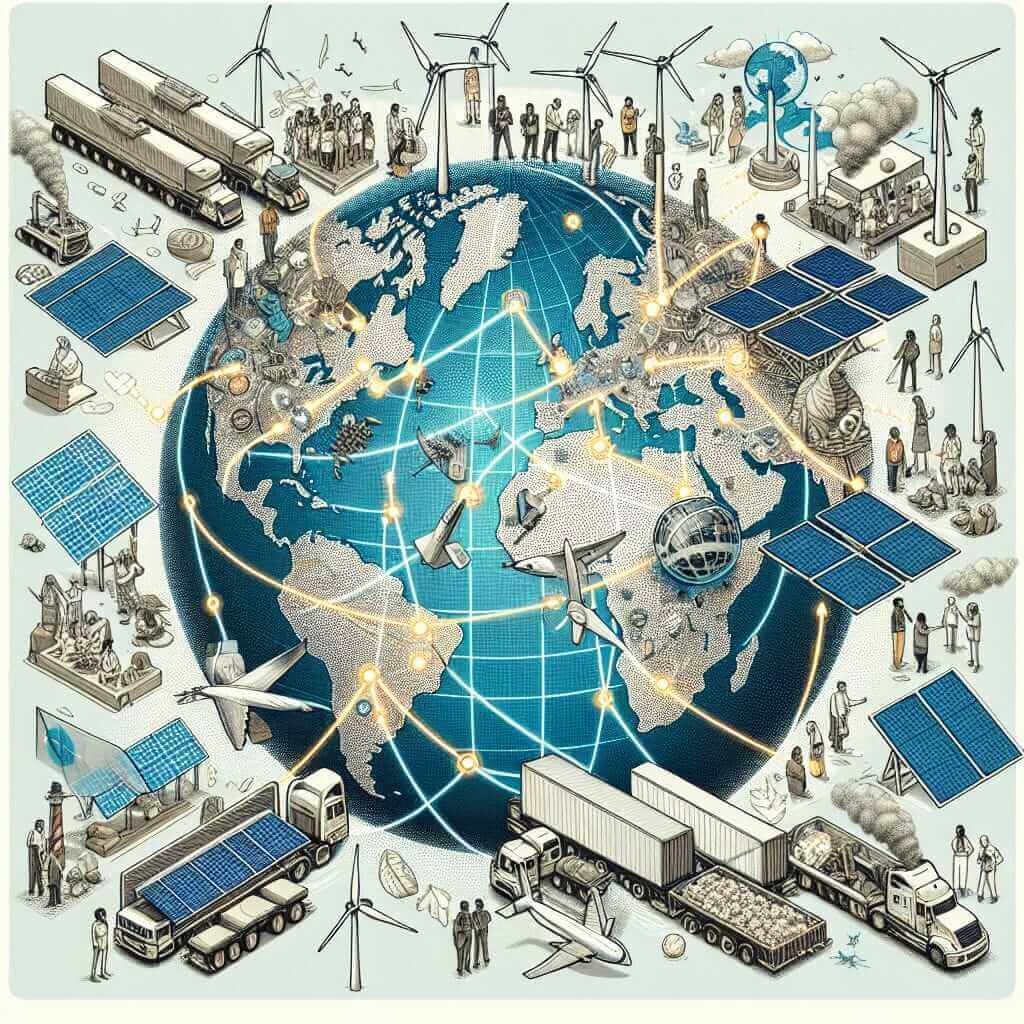The Reading section of the IELTS exam is a challenging yet vital part of the test, requiring candidates to read passages and answer questions that assess their comprehension skills. One of the trending topics often discussed in relation to current global issues is “How does renewable energy adoption affect international trade relations?”. Given its significance in recent years, it is not improbable to encounter similar themes in future IELTS exams.
Main Content
Reading Passage: Renewable Energy Adoption and International Trade Relations
Passage (Medium Text):
Over the past few decades, the rapid adoption of renewable energy sources has significantly transformed international trade relations. Countries across the globe are transitioning from fossil fuels to more sustainable energy solutions, such as solar, wind, and hydroelectric power. This shift is driven not only by environmental concerns but also by the economic benefits associated with renewable energy.
One of the fundamental changes observed is the diversification of energy suppliers. In the previous era dominated by fossil fuels, major oil and gas-producing nations held substantial geopolitical power. However, the rise of renewable energy has decentralized this control, allowing even smaller nations with abundant natural resources to emerge as key players in the energy market. For example, countries like Denmark and Portugal have become leaders in wind energy production, while Morocco has heavily invested in solar energy.
Additionally, renewable energy adoption has fostered international cooperation. Trade in renewable energy technologies, such as solar panels and wind turbines, has increased, creating new economic opportunities and partnerships. Nations are collaborating on research and development to improve efficiency and reduce costs, which has led to significant advancements in technology.

On the other hand, this transition poses challenges to traditional energy-exporting countries. With decreasing global demand for fossil fuels, these nations face economic and political instability. To mitigate these challenges, some of these countries are investing in renewable energy domestically to diversify their economies and reduce their reliance on fossil fuel exports.
In conclusion, the adoption of renewable energy is reshaping international trade relations by diversifying energy suppliers, fostering cooperation, and challenging the dominance of fossil-fuel exporters. This transition underscores the importance of adapting to new economic realities and investing in sustainable solutions for long-term stability.
Questions
Multiple Choice Questions:
-
What has been a fundamental change in international trade relations due to renewable energy adoption?
a) Increase in fossil fuel imports
b) Diversification of energy suppliers
c) Decrease in technology trade
d) Centralization of energy control -
Which countries are mentioned as leaders in wind energy production?
a) China and the United States
b) Denmark and Portugal
c) Germany and France
d) Morocco and Spain
Identifying Information (True/False/Not Given):
-
Renewable energy adoption has completely eliminated the geopolitical power of oil-producing nations.
- True
- False
- Not Given
-
Morocco has become a leader in hydroelectric power production.
- True
- False
- Not Given
Matching Sentence Endings:
-
Renewable energy technologies such as solar panels and wind turbines have…
a) Decreased the efficiency of energy production.
b) Increased international trade and economic opportunities.
c) Led to higher costs and inefficient energy solutions.
d) Reduced the need for international cooperation. -
Traditional energy-exporting countries are…
a) Continuing to rely solely on fossil fuels.
b) Diversifying their economies with renewable energy investments.
c) Not affected by the transition to renewable energy.
d) Increasing their fossil fuel exports.
Answer Key and Explanations
-
b) Diversification of energy suppliers
- Explanation: The passage states that renewable energy adoption has led to a decentralized control of energy suppliers, previously dominated by fossil fuel-producing nations.
-
b) Denmark and Portugal
- Explanation: Denmark and Portugal are highlighted as leaders in wind energy production within the passage.
-
False
- Explanation: The passage mentions decentralized control but does not state that the geopolitical power of oil-producing nations has been completely eliminated.
-
False
- Explanation: Morocco is investing in solar energy, not hydroelectric power production.
-
b) Increased international trade and economic opportunities.
- Explanation: The passage indicates that trade in renewable energy technologies has fostered economic opportunities and partnerships.
-
b) Diversifying their economies with renewable energy investments.
- Explanation: Traditional energy-exporting countries are investing in renewable energy to mitigate economic and political instability.
Common Mistakes and Troubleshooting
When tackling these types of passages and questions, candidates often face specific pitfalls:
- Misinterpreting Keywords: Ensure you fully understand keywords and context, avoiding assumptions based on partial information.
- Incomplete Reading: Read the entire passage thoroughly before attempting questions to grasp the overall theme and details.
- Overlooking Details: Pay attention to specific details such as countries and their specified roles, as these often appear in questions.
Vocabulary
- Diversification (n): /daɪˌvərsɪfɪˈkeɪʃən/ – The process of making or becoming more varied.
- Geopolitical (adj): /ˌdʒiːoʊpəˈlɪtəkəl/ – Relating to politics, especially international relations, as influenced by geographical factors.
- Mitigate (v): /ˈmɪtɪˌɡeɪt/ – Make less severe or serious.
- Instability (n): /ˌɪnstəˈbɪləti/ – Lack of stability; the state of being likely to change.
Grammar Focus
- Passive Voice: Used extensively to focus on the action rather than the subject. Example: “Renewable energy adoption has been driven not only by environmental concerns.”
- Relative Clauses: To provide additional information without starting a new sentence. Example: “Countries, which are transitioning from fossil fuels, are noticing economic benefits.”
Advice for High Reading Scores
To excel in the Reading section:
- Develop Skimming and Scanning Skills: Quickly identify main ideas and locate specific information.
- Time Management: Practice managing your time effectively to complete all questions within the allocated time.
- Practice Different Question Types: Familiarize yourself with various question formats and practice regularly using sample tests.
By incorporating these strategies and understanding the nuances of reading comprehension, candidates can significantly improve their performance and attain high scores in the IELTS Reading section.